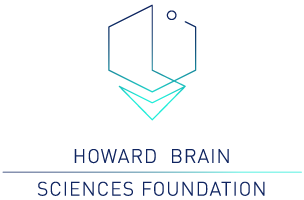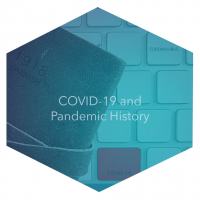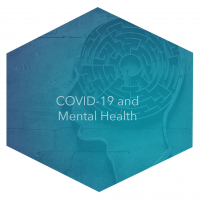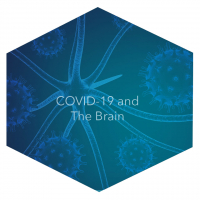HBSF COVID-19 Impact
As the general public has become increasingly aware, the Coronavirus Disease 2019 (COVID-19) is a novel respiratory illness. The virus continues to spread between people in close proximity via respiratory droplets and has an incubation period of roughly 14 days (Center for Disease Control, 2020). However, research is developing regularly exploring the different modes of transmission. The general symptoms include fever, coughing, and shortness of breath, and though the disease can be lethal in any population; the elderly and immunocompromised are considered especially at risk to experience health complications due to COVID-19. (Center for Disease Control, 2020). There is also concern that patients who recover still may be left with long term lung damage (Bostock, 2020).
Government responses have varied, but have included measures such as shutdowns, curfews, and calls for self-isolation, self-quarantine, and/or social distancing. In the wake of these changes, many people have become unemployed or have had their work hours reduced. In Maryland, “Gov. Larry Hogan issued a statewide stay-at-home order on March 30” (CNN, 2020). New York’s Gov. Andrew Cuomo issued an executive order closing non-essential businesses until April 29th (CNN, 2020).
HBSF researchers are currently assisting with ongoing COVID-19 research with ni2o, Inc. a spinout of Oxford University, and in collaboration with Georgetown University to produce a rapid testing device. Ni2o’s testing device is non-invasive and uses a sample of saliva in detecting an individual’s immune response towards the virus. The testing device can detect an immune response in ~5 minutes or less and will be the fastest available non-invasive rapid testing on the market. If you would like to learn more about the research HBSF is conducting please contact us at info
The Performance of Deep Neural Networks in Differentiating Chest X-Rays of COVID-19 Patients From Other Bacterial and Viral Pneumonias
Link to Frontiers Article by Mohamed Elgendi, Muhammad Umer Nasir, Qunfeng Tang, Richard Ribon Fletcher, Newton, Howard, Carlo Menon, Rabab Ward, William Parker, and Savvas Nicolaou
Abstract:
Chest radiography is a critical tool in the early detection, management planning, and follow-up evaluation of COVID-19 pneumonia; however, in smaller clinics around the world, there is a shortage of radiologists to analyze large number of examinations especially performed during a pandemic. Limited availability of high-resolution computed tomography and real-time polymerase chain reaction in developing countries and regions of high patient turnover also emphasizes the importance of chest radiography as both a screening and diagnostic tool. In this paper, we compare the performance of 17 available deep learning algorithms to help identify imaging features of COVID19 pneumonia. We utilize an existing diagnostic technology (chest radiography) and preexisting neural networks (DarkNet-19) to detect imaging features of COVID-19 pneumonia. Our approach eliminates the extra time and resources needed to develop new technology and associated algorithms, thus aiding the front-line healthcare workers in the race against the COVID-19 pandemic. Our results show that DarkNet-19 is the optimal pre-trained neural network for the detection of radiographic features of COVID-19 pneumonia, scoring an overall accuracy of 94.28% over 5,854 X-ray images. We also present a custom visualization of the results that can be used to highlight important visual biomarkers of the disease and disease progression.
Donate
Now more than ever, we’re so grateful for the community that has funded our research at the Howard Brain Sciences Foundation through the years. At a time when everything feels uncertain, we find comfort and encouragement, knowing that you care about our cause. Please consider supporting HBSF by donating to our COVID-19 Research Fund as we dedicate our research to COVID-19 testing.
COVID-19 Impact Blog
Featured
Special Issue
COVID-19: Medical Internet of Things and Big Data Analytics
The coronavirus pandemic, which began in January of 2019, was a crisis that affected the entire world medically, socially, and economically. Most of the world was unprepared for such a catastrophe that overwhelmed the healthcare system and forced people to stay in their homes. The pandemic not only highlighted problems and unpreparedness in our current healthcare system, but also created the opportunity for telehealth and data analytics to come to the forefront.
This Special Issue invites high quality papers that discuss COVID-19 and the medical Internet of Things and big data analytics. This can include but is not limited to topics
Telehealth, Big Data, Tracking and predicting pandemics and other health crises, Disease prevention maps, Homestay data, Digital surveillance, DNA, Genomics, Flattening curve, COVID modeling, Healthcare supply chain, E health, M health, Telemedicine, Personalized medicine, Machine learning for testing, Machine learning for diagnostics, Machine learning,Impact on internet of things, Impact of COVID-19 on cybersecurity and hacking, Impact on zoom and other conference platforms.
Manuscript Submission Information
Manuscripts should be submitted online at www.mdpi.com by registering and logging in to this website. Once you are registered, click here to go to the submission form. Manuscripts can be submitted until the deadline. All papers will be peer-reviewed. Accepted papers will be published continuously in the journal (as soon as accepted) and will be listed together on the special issue website. Research articles, review articles as well as short communications are invited. For planned papers, a title and short abstract (about 100 words) can be sent to the Editorial Office for announcement on this website.
Submitted manuscripts should not have been published previously, nor be under consideration for publication elsewhere (except conference proceedings papers). All manuscripts are thoroughly refereed through a single-blind peer-review process. A guide for authors and other relevant information for submission of manuscripts is available on the Instructions for Authors page. Big Data and Cognitive Computing is an international peer-reviewed open access quarterly journal published by MDPI.
Please visit the Instructions for Authors page before submitting a manuscript. The Article Processing Charge (APC) for publication in this open access journal is 1000 CHF (Swiss Francs). Submitted papers should be well formatted and use good English. Authors may use MDPI’s English editing service prior to publication or during author revisions.
Your Support Helps HBSF to:
Foster multidisciplinary, collaborative research with the world’s top universities, mathematicians and scientists.
Continue to support student efforts by promoting their work and providing them with the tools and resources needed to carry out their research.
Conduct its own research studies without any restrictions allowing HBSF to have full autonomy and freedom to make those necessary, groundbreaking discoveries.
Educate the public about new advancements in the field and important developments surrounding AI, Machine Learning and technology in healthcare.
Advancing Brain Health
Want to keep up to date on all our latest research and activities? Sign up for our newsletter!






